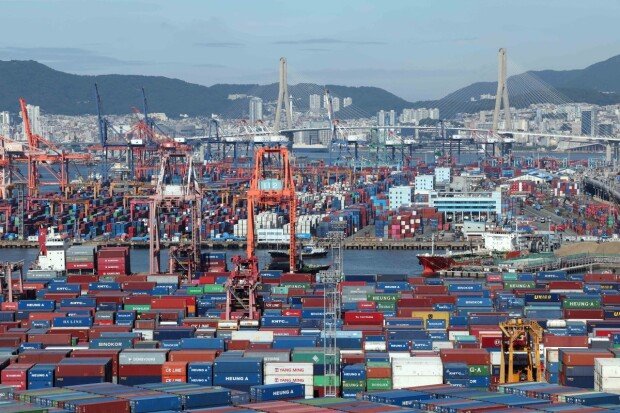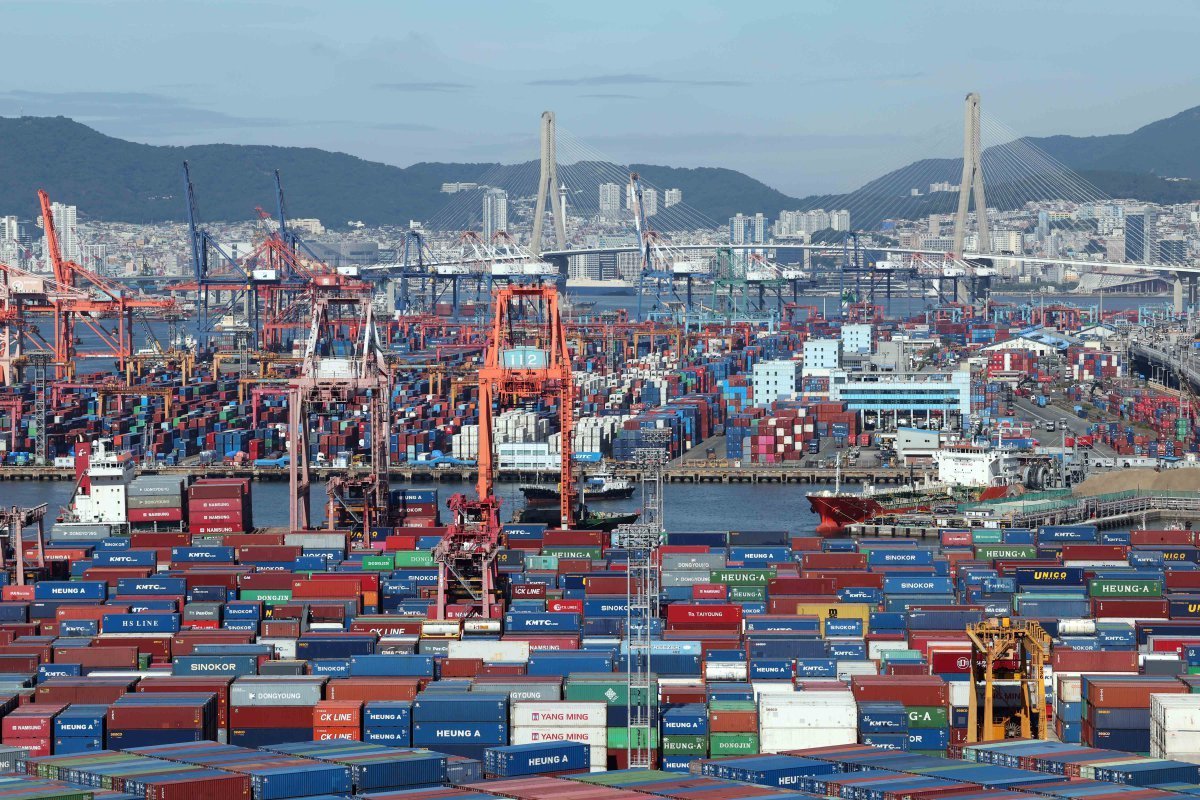
With tariff hikes under the Trump administration set to take effect, South Korean exporters are growing increasingly concerned about their prospects. According to a recent survey, more than 90 percent of Korean firms said they would struggle to endure U.S. tariffs exceeding 15 percent, and four in ten predicted a decline in exports during the second half of 2025.
On July 11, the Federation of Korean Industries (FKI) released a report outlining the export outlook for the latter half of the year. The survey, conducted by Mono Research, gathered responses from 150 companies across South Korea’s 10 key export industries.
Among respondents, 92 percent said they would be unable to withstand a U.S. tariff increase of 15 percent or more. The warning follows a July 7 announcement by the Trump administration that the United States will impose a 25 percent reciprocal tariff on South Korean imports starting Aug. 1. Product-specific tariffs, including 25 percent on automobiles and auto parts and 50 percent on steel and aluminum, are already in place.
The FKI report projects that overall export volume will fall by an average of 1.6 percent year-on-year in the second half of 2025. The steel industry is expected to be hit the hardest, with exports declining by 5 percent. Other affected sectors include shipbuilding, down 2.5 percent, automobiles, down 0.6 percent, and semiconductors, down 0.5 percent.
Among companies expecting an export decline, 45.6 percent cited increased trade uncertainty, including tariffs, as the primary reason. Another 26.6 percent pointed to slowing economies in key markets. Asked to identify the most serious export risk for the second half of the year, 53.3 percent of firms named the Trump administration’s tariff policies, followed by falling demand due to sluggish global growth (14 percent) and escalating U.S.-China trade tensions (12.7 percent).
In response to the tariff hikes, companies reported plans that include cost reductions (33.7 percent), adjusting export prices (33.2 percent), and expanding local production overseas (14.7 percent). However, 14.2 percent of firms said they had no specific countermeasures in place.
Lee Sang-ho, director of FKI’s Economic and Industrial Headquarters, warned that short-term strategies focused on cutting costs may soon reach their limits. He stressed the need for trade agreements that reflect the competitive strengths of Korean exporters and called for stronger institutional support to diversify export markets and enhance global competitiveness.
이민아기자 omg@donga.com
